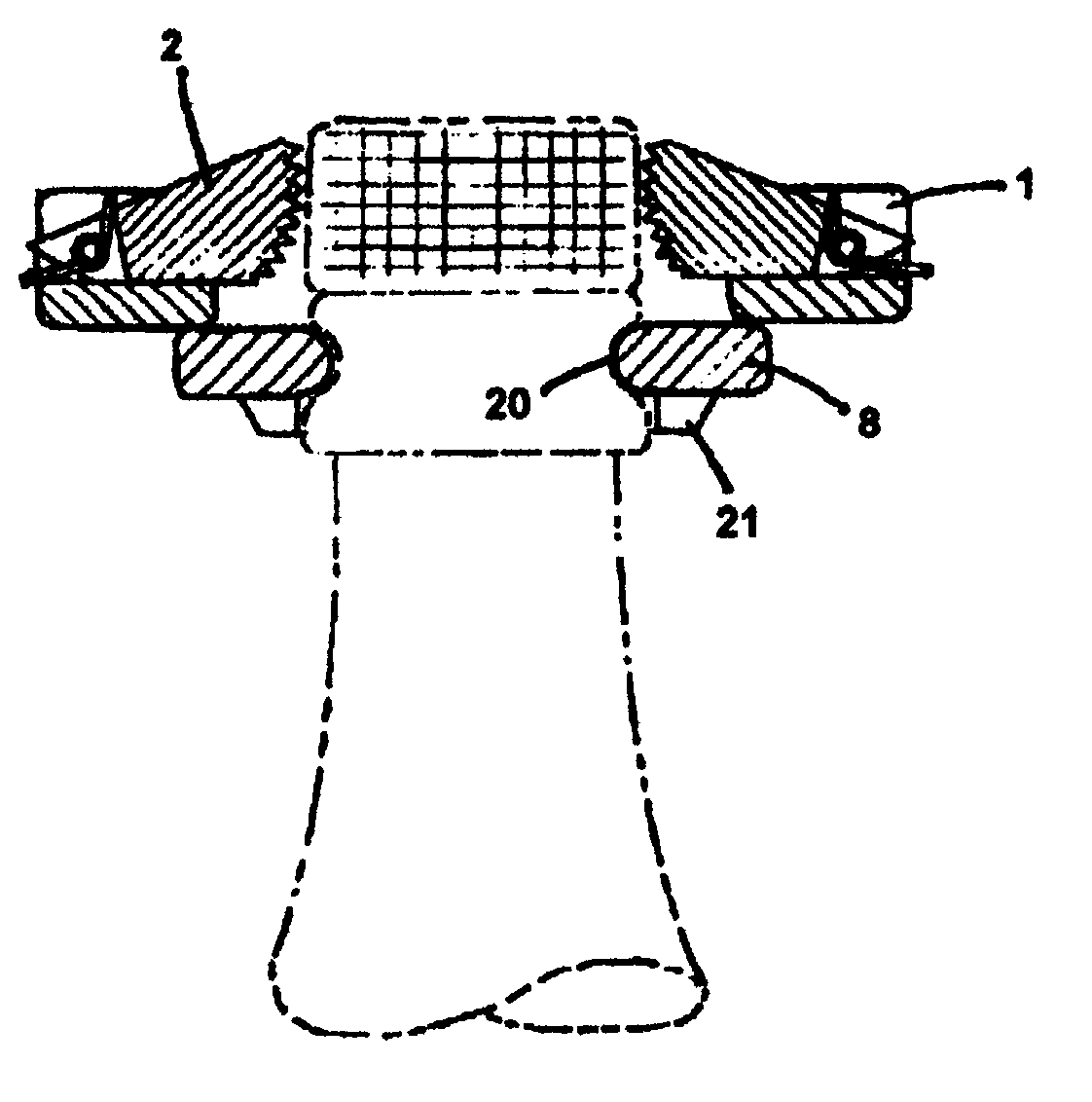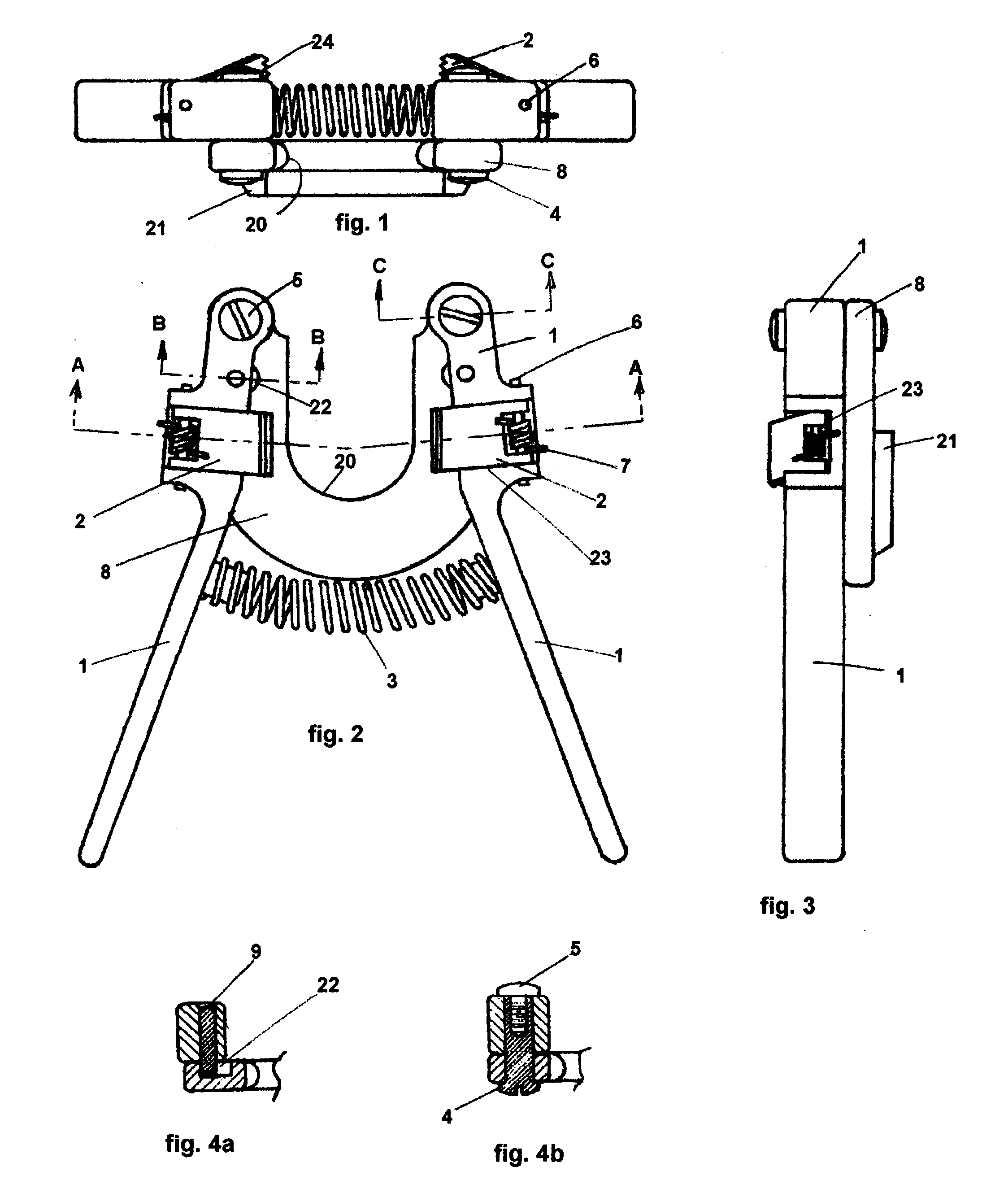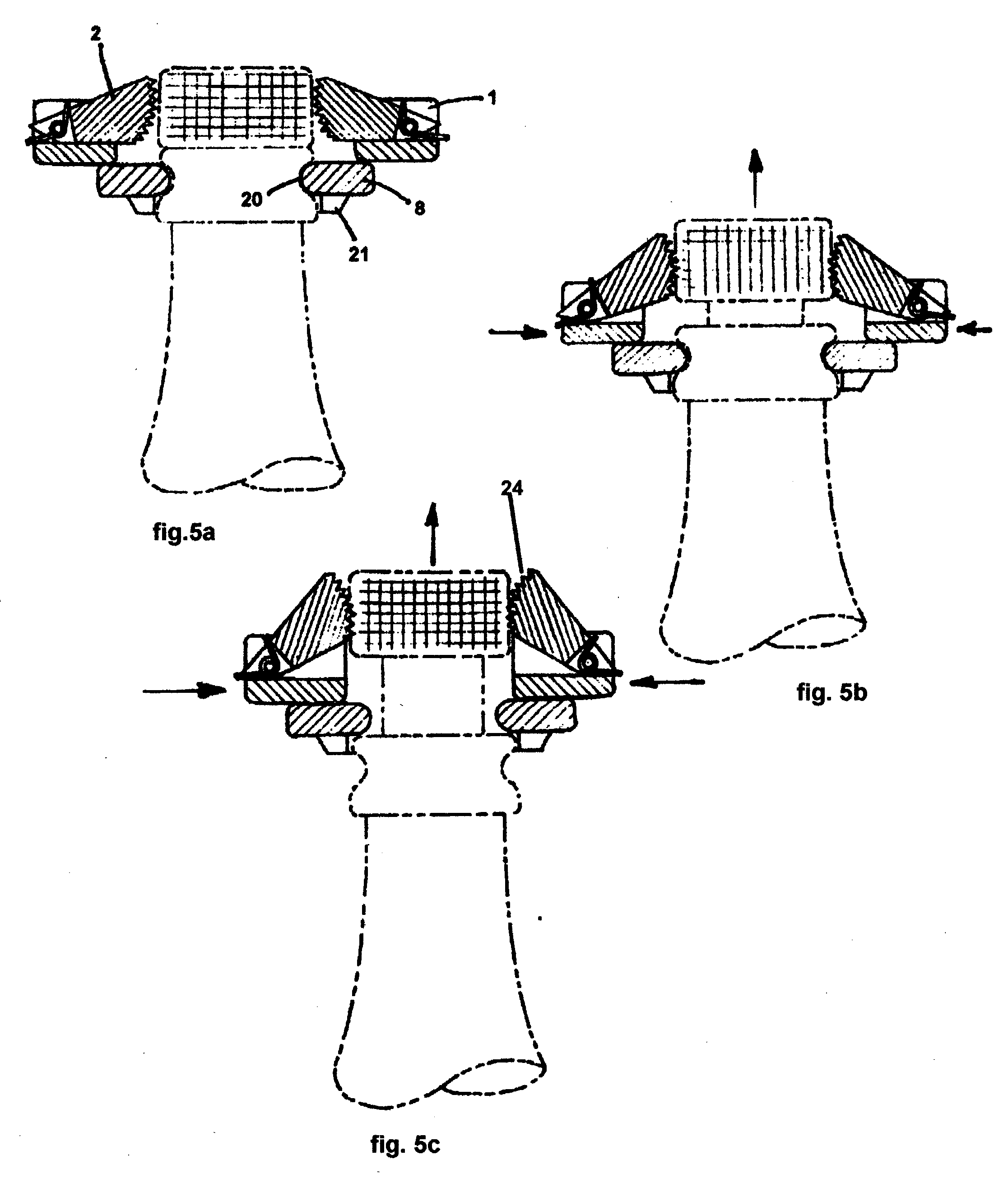Champagne cork remover
- Summary
- Abstract
- Description
- Claims
- Application Information
AI Technical Summary
Benefits of technology
Problems solved by technology
Method used
Image
Examples
Embodiment Construction
[0030] The preferred embodiment of this invention is illustrated in the three views of FIG. 1, FIG. 2, and FIG. 3. The lever-arms 1, shown in all three views, are connected to the base plate 8, by two pivots 4 These are kept in place by fillister head screws 5. The pivots 4, are a close but loose fit into the lever-arms 1, and of a length that allows free angular movement of the lever-arms. A compression spring 3, fitted between the lever-arms 1, tends to hold them apart. Stop-pins 9, protruding through the lever-arms into the stop-pin cavities 22 serve to constrain angular movement of the lever-arms to within the comfortable manipulation range of the average adult hand. Extractor links 2, are located in channels 23, formed across the lever-arms at a point in line with the center of the radius of the U-shaped cutout 20. Thus located, the extractor links 2, are moved toward the center of the U-shaped cutout 20, when lever-arms 1, are moved together.
[0031] The U-shaped cutout 20, of t...
PUM
 Login to View More
Login to View More Abstract
Description
Claims
Application Information
 Login to View More
Login to View More - R&D
- Intellectual Property
- Life Sciences
- Materials
- Tech Scout
- Unparalleled Data Quality
- Higher Quality Content
- 60% Fewer Hallucinations
Browse by: Latest US Patents, China's latest patents, Technical Efficacy Thesaurus, Application Domain, Technology Topic, Popular Technical Reports.
© 2025 PatSnap. All rights reserved.Legal|Privacy policy|Modern Slavery Act Transparency Statement|Sitemap|About US| Contact US: help@patsnap.com



